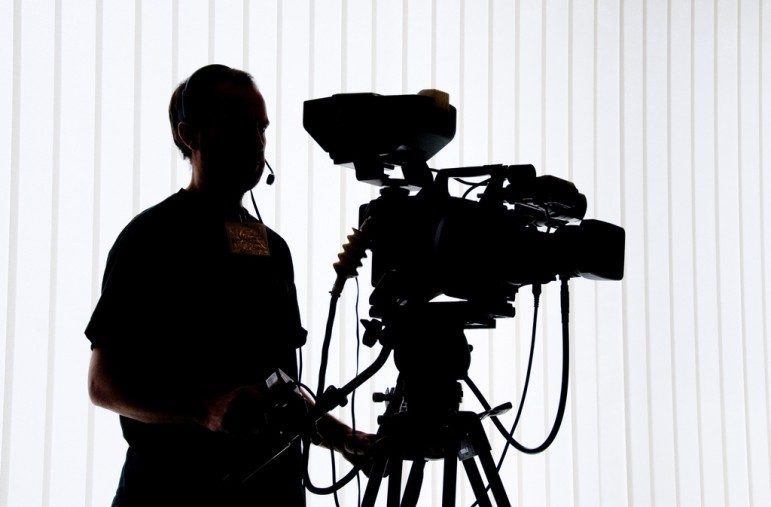
Media freedom in Qatar has continued to deteriorate for the fourth year in a row, according to a new report by Reporters Without Borders.
Qatar is now ranked 123rd out of 180 countries on the 2016 World Press Freedom Index.
Down six spots from last year, the score is the lowest the country has seen in at least a decade.
The index measures media independence and respect for the safety and freedom of journalists, among other things.
Each country’s score is calculated by experts’ answers to questionnaires, as well as “data on abuses and violence against journalists” last year.
Speaking to Doha News, Alexandra El Khazen, head of RSF’s Middle East desk, said Qatar dropped in the rankings for several reasons.
Mostly, however, it’s because nothing was done “to significantly improve the work environment for journalists,” she said.
Despite the tumble, Qatar remains ahead of the rest of the Gulf, except for Kuwait and the UAE.
Doha News
El Khazen pointed out that a Danish film crew was detained and questioned while in Qatar last year.
Their experience comes after authorities arrested two different film crews in 2015. This has made journalists more apprehensive about investigating and reporting on the country, RSF said at the time.
This year, the Paris-based organization said reporters continue to have “little leeway” to report stories in the face of an “oppressive legislative arsenal and “draconian system of censorship.”
El Khazen said one example of this is the government’s blocking of Doha News inside the country six months ago due to “licensing issues.”
RSF and rights groups have denounced the ban as censorship on one of the country’s only independent media outlets.
And even the US State Department theorized that the blocking of DN had to do with its “coverage of socially sensitive issues ranging from labor rights to homosexuality.”
DN has since moved its operations outside of the country so that it is no longer violating any rules, but the government has still not unblocked it.
However, in March, RSF launched a mirrored version of the Doha News website that is accessible in Qatar to mark the World Day Against Cyber-Censorship.
Al Jazeera
RSF does acknowledge that in Qatar, one bright spot amid a sea of self-censorship is Al Jazeera, which swept an awards ceremony in the US last week.
It won Broadcaster of the Year, as well as five gold world medals, 14 silver and seven bronze ones at the New York Festivals World’s Best TV & Films awards.
Some of the award-winning reports spotlighted investigations in Afghanistan, Hong Kong and India.
But according to RSF, while the network “has transformed the media landscape in the rest of the Arab world,” it “ignores what happens in Qatar itself.”
Al Jazeera is government-funded. So is journalism and communications school Northwestern University in Qatar and the Doha Centre for Media Freedom.
Strict laws
Meanwhile, local journalists continue to be legally bound to Qatar’s media law, which has not been formally updated since 1979.
Under that, the government has the right to use “prior restraint.” This means it can order news outlets not to cover certain subjects.
The Cabinet also has the authority to shut down newspapers and cancel their licenses, making it almost impossible to cover government affairs critically.
And Qatar’s cybercrime law, which was passed in 2014, has made it easier for criminals and those with personal agendas to silence others, including journalists.
This is because of its controversial privacy provisions. These make it illegal to publish news related to the personal or family life of individuals — even if the information is true.
The cybercrime law also contains a vaguely worded clause that criminalizes any content found to violate the country’s “social values” or “general order.”
Last year, Qatar’s former justice minister publicly denounced the law. Najeeb Al Nuaimi called it a “tool of intimidation” that “was like a knife held close to the necks of writers, activists and journalists.”
Months later, he was banned from leaving Qatar over apparent charges of professional misconduct. He has said the accusations are baseless.
Global woes
Overall, it was a bad year for journalism around the world, with nearly two thirds (62.2%) of the countries measured deteriorating in terms of media freedom. We are now at a “tipping point,” RSF said in its report.
It added that the erosion of free media in democracies has been a particularly troubling development. Both the US and UK fell two spots in the latest rankings.
According to RSF:
“We have reached the age of post-truth, propaganda, and suppression of freedoms — especially in democracies.
In sickening statements, draconian laws, conflicts of interest, and even the use of physical violence, democratic governments are trampling on a freedom that should, in principle, be one of their leading performance indicators,” it said.
The top-scoring nations on this year’s Index were Norway, Sweden and Finland.
Turkmenistan, Eritrea and North Korea held the bottom three positions.
Within the GCC, Kuwait ranked the highest at 104th, falling one spot from last year.
It was followed by Qatar (123rd), the UAE (steady at 119th), Oman (down one spot to 126th), Bahrain (down two spots to 164th) and Saudi Arabia (down three spots to 168th).
Gulf states were brought down in the rankings because topics like ruling families and Islam continue to remain off limits to journalists there, El Khazen said.
Additionally, RSF slammed the UAE’s increasing surveillance of journalists and Saudi Arabia’s lack of independent media.
Thoughts?